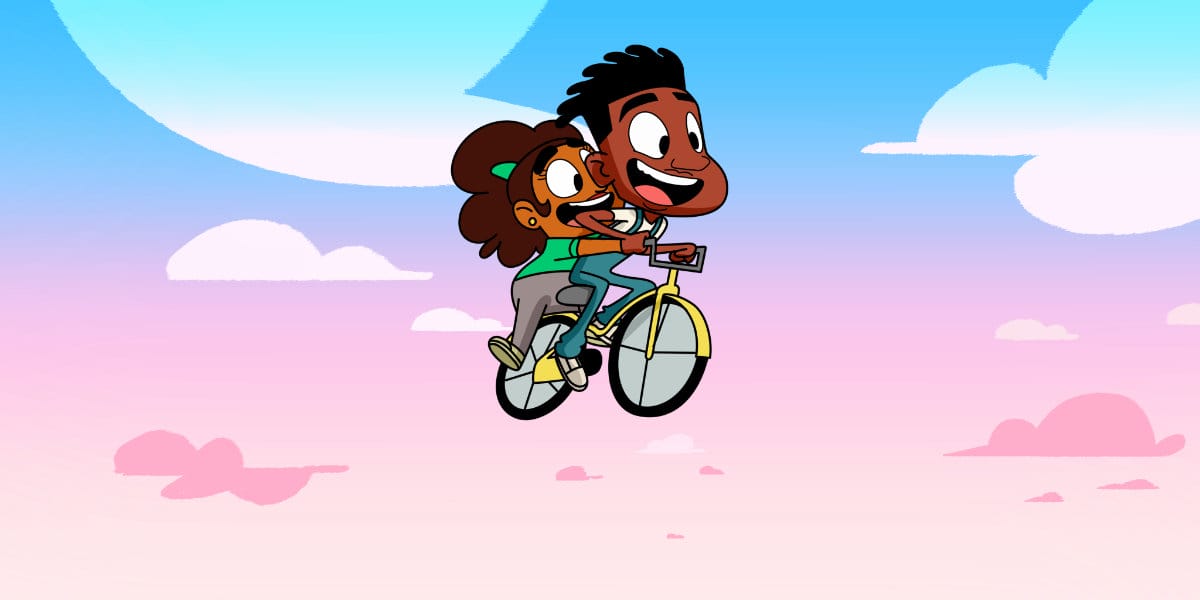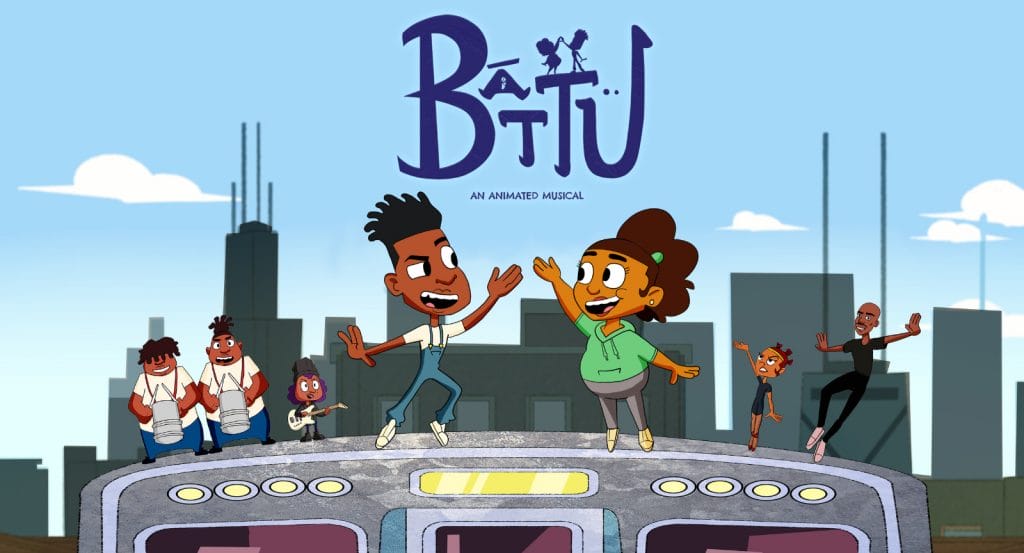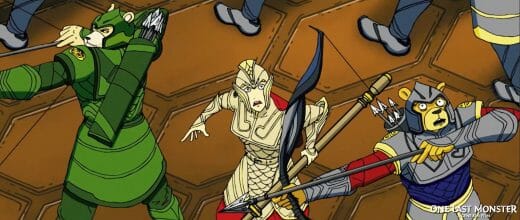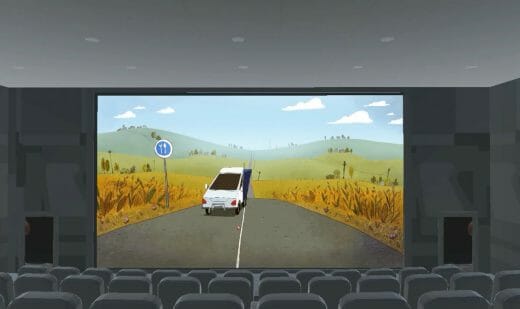
Chaz Bottoms is an animation director, story artist, and writer based in Los Angeles. While working for Nickelodeon, Cartoon Network, and Netflix, Chaz founded CBA Studios, his own boutique animation company. CBA Studios has produced animation for Disney, Lil Nax X, Lebron James, and Sesame Street, among many other clients.
Chaz was included in Forbes’s 2023 30 Under 30 – Hollywood & Entertainment article for his work with CBA Studios, being one of few Black animation studio founders. He is also a 2023 Toon Boom ambassador and an annual attendee of the Afro Animation Summit. Our previous article with Afro Animation Summit founder Keith White can be found here.
We sat down with Chaz to discuss the Afro Animation Summit, the experience of POC artists in the animation industry, and the importance of diversity and inclusion in media – both on and off-screen.
What has your career path looked up to this point, and what do you hope to do moving forward?
Chaz: Yeah, absolutely. I’ve always loved animation. I’ve always loved cartoons. I feel like I’m one of those few, where at a young age, I knew animation was what I wanted to be doing. So I moved out to LA pretty much right after graduation. I went to DePaul University out in Chicago. And while I was a junior, I started freelancing, doing just animated music videos, lyric videos, ads for small businesses. That really kind of taught me how to be efficient in creating stuff.
So when I moved out to LA, I had a bit of a portfolio. I got my start in music videos and that led to creating the Lil Nas X Panini music video. That was really the first big project I worked on. From there, I moved from the independent space into the studio space.
And that same year, I founded a boutique animation studio, CBA Studios. Later this year, we’ll be celebrating our five-year anniversary, which is really dope. It was really more of a continuation of freelancing as I got deeper into my career. The projects got bigger, and the scope of them got bigger. So I needed to start collaborating with my friends and other artists who could help carry the load.
Over the course of the last five years, we’ve done stuff for Sesame Street, Adult Swim. The biggest project has been producing animation work for Disney’s Saturday, a live action show that had animated, almost Lizzie McGuire segments. We started in the indie space, but we’re hoping to become like a full-service TV film production company.
While all that’s been happening as well, my nine-to-five studio experience has been working at Nickelodeon, working at Cartoon Network, and working at Netflix, mostly in the storyboards department. Those are just amazing opportunities where I was really able to learn from people who have been doing this much longer than I have. It’s been a really fun journey so far.
Ultimately I hope to just be a prolific animation director in the industry. I would love to direct features and also produce features, and try to give opportunities to underrepresented artists and voices. That’s been the thing that’s kept me and probably CBA Studios going: just being able to tell stories and work with people who don’t often see themselves represented in animation.
Because of the nature of our industry, it takes a long time to produce. But with each project we get smarter, we get more efficient, and we learn. I definitely want to keep CBA going, definitely want to keep working in the industry and learning.
I feel like opportunities like Afro Animation are a chance to meet legends in the industry. It’s been awesome for Keith White to be able to get the talent that he’s got to come and speak at panels and just hang around at the event. It’s a testament to him and just creating that space where we can really connect with the community.
We all might be going through similar things in the industry. So having that space to connect and strengthen bonds is really awesome. There aren’t many opportunities like that.
I imagine this sort of conference is very important for advertising CBA’s projects and getting more opportunities for your studio, but also for finding the new talent that wants to be a part of your team.
Chaz: Yeah, absolutely. Discovering new talent and new voices, whether it’s younger or older artists, is always amazing.
And I know that there’s a lot of interest in animation in colleges. Even giving those younger students a chance to come out and get a quick bird’s-eye view of the industry is super helpful. That definitely wasn’t around when I was in college. And that was only, like, seven years ago. Stuff’s changing, which is good.
How did you first hear about the AfroAnimation Summit?
Chaz: I was approached by Keith, who reached out and was aware of the stuff that I was doing at the time, which speaks to the type of research that he does. He was able to take a really personable approach to artists in the industry and explain what it is he wanted to do.
The first one was virtual, so it was very cool to be able to meet and connect through the comfort of your own home. And then to have it in person was just really awesome. It’s evolved over the years. It’s gotten larger.
What would you say were some of the best parts of last year’s conference?
Chaz: I feel like having those in-person panels and discussions are always amazing. The guests and the panelists were really able to connect after panels and talks, and speakers definitely stayed after and met with people who wanted to meet with them. A lot of people are itching to get back to being in-person and being able to feel that energy of community.
And having the studios there as well, like the booths for the big studios, was great. People who are looking for work had an opportunity to connect with a recruiter or someone at the studio and get that information that might be harder to get if you’re not in-person in front of someone. I would just say that in-person information and accessibility was big.

More and more conferences and initiatives of this sort are being organized, whether it’s women supporting women or POC artists supporting each other. Can you talk a little bit about the importance of conferences like this in general?
Chaz: When I was in school, it was hard to find Black artists in the industry who I could connect with for specific advice. Outside of maybe early social media, it was difficult. As you see more and more conferences like this pop up, I think it’s really doing a service to the younger generation and to the current up-and-coming artists.
It’s always awesome to hear the older generation give the younger generation advice on the ebbs and flows and the highs and lows of the industry. With Afro Animation, there is that virtual component, so even if you’re not able to fly out to L.A., you’re still able to hear the talks and connect with people in the chat. It creates a space where, for a few days, you can have a career check-in, like a pit stop.
What do you think that the animation industry as a whole could be doing better to support POC artists, and Black artists in particular? I realize that’s a big question.
Chaz: I’ll preface it by saying I don’t have all the answers, but I know what would have helped me as a younger artist.
More studios should invest in on-the-job training programs or shadow days – or shadow weeks, you know? I think a lot of schedules now are almost too tight to spend the time training newer artists. And so unless you’re able to get better yourself, whether through freelance work or practice outside of the industry, it’s really hard to come in and jump right in.
I’m always a big fan of short programs or short incubators where they’re putting a feeler out there for new talent or unheard voices. It just comes back to getting back to believing in diverse talent and diverse stories. It feels like there’s been a bit of a contraction from where we were a few years ago to now.
We’ve gone backwards a few steps in terms of representation that’s currently out there. There is a renaissance happening right now with indie animation. At the end of the day, [it’s important to] support those projects you want to see more of, as well as the creators that you want to hear from.
You mentioned that the industry has taken a step back in terms of representation. Did you mean representation within animation projects or as far as who’s creating those projects? Or maybe it’s a bit of both?
Chaz: It’s a bit of both. It’s mostly on-screen. You can see it with a lot of live-action shows that have been canceled in the last year. Animation takes a little bit longer, so we’re on a slightly different reactionary timeline.
I had a show in development that didn’t survive a company merger. And knowing on the inside the type of projects that were slashed, unfortunately, it was a lot of Black and Brown creators and projects. Seeing the current state of the industry, and who’s looking for work, I feel we’ve taken a few steps back from where we were maybe in 2020, 2021. I think that’s part of what’s inspired this independent animation renaissance.
I’m pretty cautiously optimistic. There’s a lot of great work being done now outside of the studio space. It might be tough on the bigger studio side, but if you look at these smaller independent studios, there’s tons of very high quality animated stuff that’s being made. I mean, you look at Helluva Boss, you look at Hair Love. If you build it, they will come.
I’m glad you mentioned Hair Love. It’s just a perfect example of an animated story that would not exist without diversity on the team.
Chaz: And that was a Kickstarter project. That’s not like a studio greenlit that. And it won an Oscar.
Do you think the future of diversity in animation is in independent studios? Or do you think there will be a swing back once studios see how popular these projects can be?
Chaz: I think it’s a swing back. The biggest animated movie of last year was Spiderman: Across the Spider-Verse and it had a Black lead. The truth in all this is that people want to see new things. People want to be exposed to new worlds while still having it feel like the everyday life that they live. We can’t get discouraged from ever pitching or sharing our ideas again. And it’s also on studios to understand and learn how to invest and also develop our talent.
For sure. And it makes a lot of business sense to tell diverse stories from diverse storytellers. We know from, at least at the live-action the box office, movies that pass the Bechdel test do way better than movies that don’t. I wouldn’t be surprised if there are similar stats as far as racial and cultural representation as well.
Chaz: Oh yeah, absolutely. I just read that the profit margins are normally the highest with diverse-led projects.
And when I say we need to see that investment, I hope we do see more mid-tier studio films coming back. Instead of these gigantic $250 million, “everything’s riding on this” films, I would love it if we got ten very different movies that are at $25 million. I feel like we could make some really cool stuff.
- For more information on Chaz Bottoms and to keep up with his work, check out his website and Instagram page. Chaz will be releasing his next short film, BATTU: An Animated Musical, later this year.
- Interested in learning about how Chaz Bottoms founded CBA Studios? Chaz was a guest in our Founding an Animation Studio panel on YouTube.



